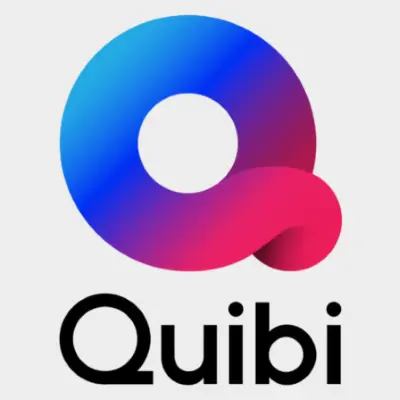A "sincere Quibi fan" reacts to the shortform streaming service's demise
-

Houston-based IT consultant Christopher Byrd was a "Day One" subscriber to Quibi, which he watched as much as YouTube during the pandemic. He enjoyed watching Chrissy's Court, Reno 911! and Shape of Pasta. Byrd he watched at least 20 minutes of Quibi a day. What was his reaction to the shutdown announcement? "I’m disappointed that it’s closing down, but I understand it," he tells Slate. "It’s not a good thing if you can spend so much money and you don’t see any return on investment. Especially when you saw big names like Peacock or Disney, they launch and they get millions and millions of subscribers right away. Probably because they have a lot of name brands already behind them. But this service had everything big on it, and that it’s still failing is really discouraging. It’s like, 'Maybe I shouldn’t hop on new services.' Because you do feel like you invest all that time, you want to see it thrive and keep going so that you get to see those Season 2s, or you get to see where these people’s creativity takes them. But now I won’t get to see that, and that is pretty discouraging and pretty sad overall. I think for folks like me, who don’t always have time to sit there for an hour to watch a show, this allowed me to feel like I was getting to consume those shows.
ALSO:
- Blame "the cult of the visionary entrepreneur" for Quibi refusing to listen to early warnings it was flawed: "The most important lesson that Quibi’s demise demonstrates is already painfully clear: If pretty much everyone thinks your product or service is bound to fail, you should probably listen," says James Surowiecki. "What was most striking about Quibi from the start, after all, was that it was met with near-unanimous skepticism, if not outright disdain. Quibi was a 'billion-dollar boondoggle.' It had a 'fatal (but fixable) flaw.' It was 'doomed to fail.' Forbes was already talking about how 'Quibi Can Succeed Even After It Fails' in July 2019—eight months before the service even launched. Of course, in our hot-take world, there are always going to be critics of any new venture. But in this case, the chorus was close to universal. And the criticisms of the service were both specific and prescient." Surowiecki adds: "The point is that Quibi’s fate was foreseen by everyone — everyone except, it would seem, the people inside the company. So why didn’t they listen? Well, we know why: the cult of the visionary entrepreneur, exemplified by Steve Jobs. It says, in the crudest sense, that if everyone thinks something is a crazy idea, but you think it’s brilliant, you should trust yourself and place the bet, because, as Jobs put it, 'People don’t know what they want until you show it to them.' Lots of people, after all, thought the iPod and the iPhone and the iPad were going to be flops. But Jobs trusted his own vision, and changed the world in the process...The Jobs dictum about people not knowing what they want applies mainly to products or services where you’re giving users something genuinely original. In that case, it may make more sense to ignore the crowd, because the crowd doesn’t really have much context for understanding what the product will do or the value they might derive from it. But that was very much not the case with Quibi. Quibi was not a radical new service."
- Inside Quibi's abrupt shutdown: Quibi's employees -- whose average age is 30 and who are 46% people of color -- were caught off guard by the Wednesday announcement.
- Mike Catherwood, who helmed Quibi animated series Rudy, recalled nothing awry with Quibi executives shortly before the shutdown announcement: “I have to assume that those executives didn’t know,” he tells Variety. “Otherwise they’re really good actors. Because we had an hourlong conversation about moving forward in scripts, like what’s working on script number three and what’s not. To then read the news, I was completely blown away.”
- Chinese video giant iQIYI made a no-cash offer for Quibi's content that founder Jeffrey Katzenberg rejected
- One Quibi film with 100 cast and crew continued filming in Ukraine despite being told to shut down production
TOPICS: Quibi, Jeffrey Katzenberg, Meg Whitman, Mike Catherwood
